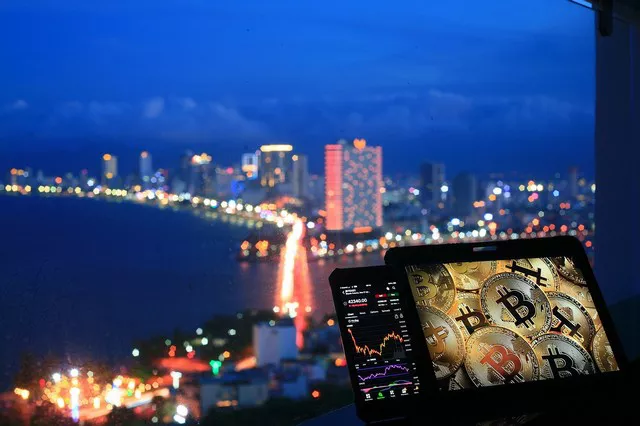Futures contracts are financial derivatives that allow traders to speculate on the future price of an underlying asset, such as commodities, currencies, stock indices, or interest rates. Buying futures contracts can provide opportunities for profit through price fluctuations, but it’s essential to understand where and how to buy them.
Futures Exchanges
Futures contracts are primarily traded on futures exchanges, which are specialized financial marketplaces that facilitate the buying and selling of these derivatives. Some of the most prominent futures exchanges globally include:
Chicago Mercantile Exchange (CME Group): CME Group is one of the largest and most well-known futures exchanges globally. It offers futures contracts on various asset classes, including commodities (such as crude oil and gold), stock indices (such as the S&P 500), and interest rates (such as the 10-Year Treasury Note).
Intercontinental Exchange (ICE): ICE is another major futures exchange that provides a wide range of futures contracts, particularly in the energy and agricultural sectors. ICE Futures US, ICE Futures Europe, and ICE Futures Canada are some of its subsidiaries.
Eurex: Eurex is a European futures exchange known for its diverse offerings, including futures on European stock indices and interest rates.
Hong Kong Exchanges and Clearing (HKEX): HKEX offers futures contracts on Asian and global stock indices, currencies, and commodities, making it a significant player in the Asian futures market.
Commodity Exchanges
Commodity futures contracts, which allow traders to speculate on the future prices of raw materials like agricultural products, energy resources, and metals, are often traded on specialized commodity exchanges. These exchanges include:
Chicago Board of Trade (CBOT): CBOT, a subsidiary of CME Group, focuses primarily on agricultural commodities like corn, soybeans, and wheat.
New York Mercantile Exchange (NYMEX): NYMEX, also part of CME Group, specializes in energy commodities like crude oil, natural gas, and metals such as gold and silver.
Intercontinental Exchange (ICE): ICE offers a broad range of commodity futures contracts, including soft commodities (coffee, sugar), metals (copper, aluminum), and energy products (Brent crude oil, natural gas).
Currency Futures
Currency futures contracts, which allow traders to speculate on exchange rates between two currencies, are often traded on dedicated currency futures exchanges. Some of the well-known exchanges for currency futures include:
Chicago Mercantile Exchange (CME Group): CME Group offers currency futures contracts on major currency pairs, such as EUR/USD, GBP/USD, and JPY/USD.
Intercontinental Exchange (ICE): ICE also provides a platform for trading currency futures, including both major and minor currency pairs.
Interest Rate Futures
Interest rate futures contracts, which allow traders to speculate on future interest rates or bond prices, are available on various exchanges, including:
Chicago Board of Trade (CBOT): CBOT, a subsidiary of CME Group, is known for its interest rate futures contracts, including the 10-Year Treasury Note and 30-Year Treasury Bond.
Eurex: Eurex offers a wide range of interest rate futures contracts, including those on European government bonds and euro-based interest rates.
Stock Index Futures
Stock index futures contracts, which allow traders to speculate on the future movements of stock market indices, are primarily traded on established futures exchanges, such as:
Chicago Mercantile Exchange (CME Group): CME Group offers stock index futures on well-known indices like the S&P 500, NASDAQ-100, and Dow Jones Industrial Average.
Eurex: Eurex provides futures contracts on European stock indices like the DAX and EURO STOXX 50.
Online Futures Brokers
While futures contracts are primarily traded on futures exchanges, individual traders often access these markets through online futures brokers. These brokers act as intermediaries, providing traders with access to futures markets, trading platforms, and various services. Some popular online futures brokers include:
Interactive Brokers: Interactive Brokers is a well-known online brokerage that offers access to a wide range of futures contracts on multiple exchanges. They provide advanced trading platforms and comprehensive research tools.
TD Ameritrade (thinkorswim): TD Ameritrade offers futures trading through its thinkorswim platform, which is favored by traders for its user-friendly interface and analytical capabilities.
Charles Schwab: Charles Schwab provides futures trading services and offers access to various futures exchanges. They also provide educational resources for traders.
ETRADE: ETRADE offers futures trading on the ETRADE futures platform. They provide access to multiple futures exchanges and offer trading tools and research.
Choosing a Futures Broker
When selecting an online futures broker, consider the following factors:
Commission and Fees: Compare the commission rates and fees charged by different brokers, as they can vary significantly.
Trading Platforms: Evaluate the trading platforms offered by brokers to ensure they meet your needs, including features like real-time data, charting tools, and order execution speed.
Customer Support: Check the availability and responsiveness of customer support, especially during trading hours.
Research and Educational Resources: Consider the availability of research materials, educational resources, and market analysis provided by the broker.
Regulation and Security: Ensure that the broker is properly regulated and adheres to industry standards for security and transparency.
Opening an Account
Once you’ve chosen a futures broker, the next step is to open a trading account. This typically involves completing an application, providing necessary identification and financial information, and funding your account. Most brokers offer various account types, including individual, joint, and corporate accounts, to accommodate different trading needs.
Risk Management
Trading futures contracts involves a significant level of risk due to the potential for substantial price swings. It’s essential to implement risk management strategies, such as setting stop-loss orders to limit potential losses and diversifying your trading portfolio to spread risk across different assets.
Conclusion
Buying futures contracts can be an exciting and potentially profitable venture for traders seeking exposure to various asset classes and financial markets. Whether you choose to trade on established futures exchanges or through online futures brokers, thorough research, risk management, and a clear trading strategy are crucial to your success. Always remember that futures trading carries inherent risks, and it’s essential to trade responsibly and within your risk tolerance.


